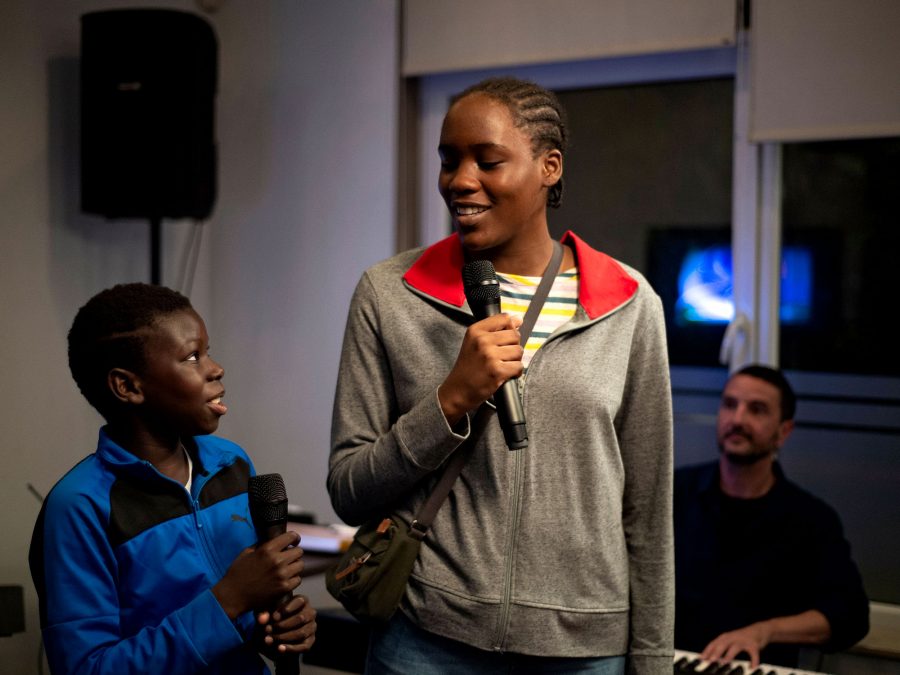Jean-Pierre and Luc Dardenne have spent their career telling stories about characters living on the margins of Belgian society, and their 10th feature Tori and Lokita takes us back to the territory of their debut La Promesse, as it explores the exploitation of undocumented African immigrants.
That 1996 film was told through a white Belgian protagonist – with Jérémie Renier’s Igor being the first Dardennes lead to find himself at a moral crossroads – but the brothers have shifted their perspective here to follow two children from Cameroon and Benin. They may be the most vulnerable characters these filmmakers have yet given us.
Tori (Pablo Schils) and Lokita (Mbundu Joely) met on the boat when they were smuggled into Europe, but Lokita poses as Tori’s older sister to aid her application for a work permit, and to ensure the pair can stay together. She is forced to substantiate that fiction in a series of harsh interrogations by the authorities that often leave her panic-stricken and in tears, but while the familial bond may be false, these marvellous young actors make us fully believe in it.
Lokita is another quietly resolute Dardennes heroine in the tradition of Rosetta or The Silence of Lorna, while the more tenacious Tori reminds us of The Kid with a Bike as he runs and cycles determinedly across town. At one point, his impulsive decision to race across the road unwisely draws the attention of the police, an unnerving reminder of how precarious their legal status is.

Things get even more dangerous for Tori and Lokita when they spend their Friday nights selling drugs for a dealer who operates out of the kitchen in an Italian restaurant. This is their only means of making money to send to Lokita’s family, but in doing so she is subjected to the dealer’s sexual impositions, and the pair must avoid the smuggler (a briefly chilling Marc Zinga) who demands whatever cash they are carrying to repay their debt.
In this film there are vultures everywhere and all these kids have in the world is each other, so when they are separated the tension instantly ramps up. Nobody does tension quite like the Dardenne brothers. As in so many of their films, there’s a moment in Tori and Lokita when a character makes a fateful decision and the narrative suddenly snaps into focus, creating stretches of the drama when you’re holding your breath and feeling a roiling sense of anxiety in the pit of your stomach.
It’s only at this point that you realise how deeply invested you have become in the fate of these children, and how powerfully the Dardennes generate empathy by creating authentic characters with simple desires and inviting us to live in their world for a brief time. The Dardennes’ style has barely evolved since their debut feature, but it’s so potent it doesn’t need to. What does need to evolve is the way we treat the kind of people they make films about. More than 25 years after La Promesse, the Dardennes have had to make another film about the way immigrants in Europe are abandoned by the state to be exploited, abused and dehumanised. Plus ça change.
Little White Lies is committed to championing great movies and the talented people who make them.
ANTICIPATION.
The Dardennes are among the most reliable filmmakers around. 4
ENJOYMENT.
Another beautifully observed drama that occasionally grips like a vice. 4
IN RETROSPECT.
Humane and heart-breaking. 4
Directed by
Jean-Pierre Dardenne, Luc Dardenne
Starring
Pablo Schils, Alban Ukaj, Mbundu Joely
The post Tori and Lokita appeared first on Little White Lies.
from Little White Lies https://ift.tt/BMw9aYc
via IFTTT

0 Comments